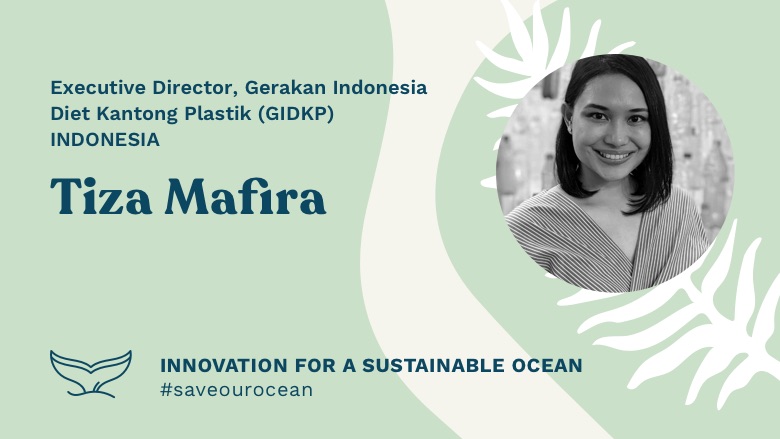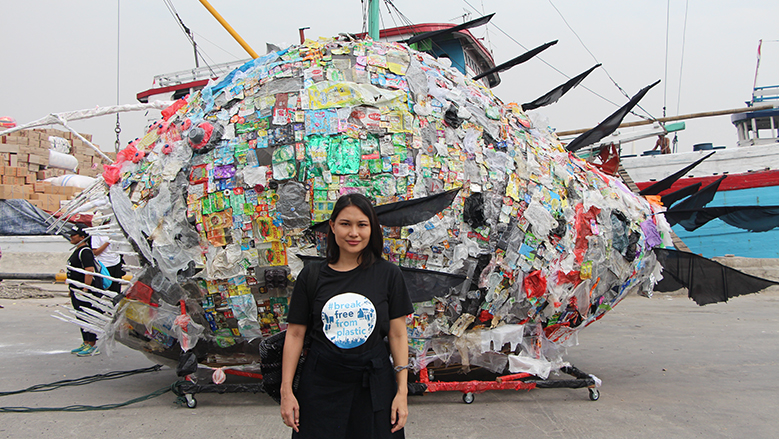Tell us about yourself.
I was born and raised in Jakarta, Indonesia and have lived here for more than 30 years. I did both my undergraduate and graduate studies in law and worked as a corporate lawyer for six years before moving to the non-profit sector to focus on environmental policy.
What comes to your mind when you think of the ocean?
I love diving, playing on the beach, traveling by boat, and I love eating seafood. For the past few years though, I've done more beach clean ups than beach holidays. The ocean isn't as pretty as it used to be when I was younger.
What does this year’s World Oceans Day theme, “Innovation for a Sustainable Ocean” mean to you?
A Reusable Revolution - using local wisdom that is revived for a modern world is the innovation we need to stop the continuous leakage of waste into the ocean. For centuries we had a system of reusable, refillable containers for everything and it was a system that worked well. Ready-to-eat meals were packed in banana leaves, vegetables were wrapped up in newspaper and everyone used woven baskets to shop. These simple, familiar, and effective solutions are making a comeback and are even being adapted to suit online purchases and delivery models.
Tell us about your work with the Indonesia Plastic Bag Diet Movement?
The Indonesia Plastic Bag Diet Movement otherwise known as the Gerakan Indonesia Diet Kantong Plastik (GIDKP), focuses on policy change to reduce single-use plastics at the source. Our work is done through government engagement, public awareness and strategic retail collaborations. We were the first organization in Indonesia to successfully push for a nationwide trial of a charge for plastic carrier bags and the first to provide technical assistance to more than 20 city-governments to ban single use plastics. Our latest innovative project is in partnership with the City of Jakarta to pilot the first plastic-free traditional market in Jakarta.
What is it that drives you to do this work?
I'm passionate about breathing clean air, drinking clean water and eating uncontaminated food. To me that should be sufficient motivation for anyone to become an environmentalist.




